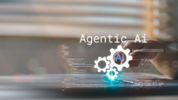Raza is the CEO and Co-founder of Humanloop and was inspired to pursue AI, deemed "the most transformative technology," during his Physics studies at Cambridge under Prof David Mackay. With a background in founding engineer at Monolith AI and building speech systems at Google AI, he holds a PhD in Machine Learning from UCL.
A recurring topic in the conversation was OpenAI's current constraint due to GPU limitations, significantly impeding their immediate plans. The chief gripe from customers pertained to the API's reliability and speed. Sam recognized their dissatisfaction and attributed the primary cause of this issue to GPU scarcities.
Sam outlined OpenAI's tentative short-term API roadmap.
For 2023, the focus includes:
- Making GPT-4 cheaper and faster - their top priority.
- Aiming for longer context windows, potentially up to 1 million tokens.
- Enhancing the finetuning API, guided by developer needs.
- Introducing a stateful API to remember conversation history, eliminating the need for repetitive token input.
In 2024, they plan to:
- Incorporate multimodality, an aspect demonstrated with the GPT-4 release, contingent on increased GPU availability.
It was also touched on that several developers expressed concerns about using OpenAI's APIs, fearing OpenAI might launch products that could compete with theirs.
Sam reassured them that OpenAI has no plans to release products beyond ChatGPT. Drawing from successful platform companies' strategies, he explained that using their own product, ChatGPT, will help enhance the APIs. While ChatGPT is envisioned as an intelligent work assistant, Sam confirmed that OpenAI will not venture into many other GPT applications.
Also, while advocating for regulation of future models, Sam doesn't perceive current models as dangerous and opposes their regulation or ban. He underscored the value of open source and revealed OpenAI's consideration to open-source GPT-3. He expressed skepticism about the capacity of individuals and businesses to host and serve large LLMs, explaining part of the reason for not yet open-sourcing.
OpenAI’s plans according to Sam Altman. The discussion touched on practical developer issues as well as bigger-picture questions related to OpenAI’s mission and the societal impact of AI. Here are the key takeaways:




